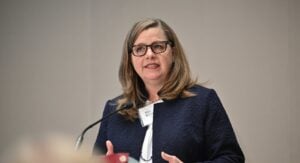
Bill Gates is regretting things left undone. Gates is sorry he hasn’t done “more to call attention to the danger” of a pandemic.” In an interview, Gates said, “I feel terrible. The whole point of talking about it was that we could take action and minimize the damage.”
For his critics, rather than minimizing the damage, Gates has done too much to set a course of action having disastrous unanticipated consequences. Gates, the billionaire philanthropist, has become a supervillain.
Since April, over 500,000 people have signed a petition at whitehouse.gov calling for an investigation of the Gates Foundation for “medical malpractice and crimes against humanity.”
Admirers of Gates blame “anti-vaccine activists and conspiracy-minded posters” for spreading “misinformation” damaging to Bill Gates’s reputation. In May, one essay claimed to debunk the assertion that Gates plans to make South Africans early test subjects for a COVID-19 vaccine. A month later, the “myth” was revealed to be true.
Gates has taken up the cause of global warming too. He is funding a mad geoengineering scheme at Harvard to partially block sunlight. Imagine setting in motion a “solution” that has the potential to destroy all life on earth. Gates’s hubris seems boundless.
You don’t need a conspiracy theory to explain Bill Gates’s transformation from entrepreneur to supervillain. Gates has always been a ruthless zealot. Yet when he was at Microsoft, his worst character flaws were held in check by the demands of running a competitive business and the necessity of meeting the needs of consumers. As a philanthropist, he is not disciplined by forces of the marketplace. Empowered by government coercion, there is nothing to keep him or us from his worst instincts.
Good Intentions Don’t Matter
Gates is ready to give away most of his vast fortune, in his words, to “coordinated global action” to prevent disease. You might give Gates high marks for his good intentions.
History is full of reasons why we should not trust those with good intentions. A common trope in movies and comics is the supervillain who is ready to sacrifice the well-being of many people to further a warped pursuit they see as noble.
In his book Capitalism and Freedom, Milton Friedman explained why “concentrated power is not rendered harmless by the good intentions of those who create it.” Friedman pointed to internal threats to freedom that are far more difficult to see than external threats:
“It is the internal threat coming from men of good intentions and good will who wish to reform us. Impatient with the slowness of persuasion and example to achieve the great social changes they envision, they are anxious to use the power of the state to achieve their ends and confident of their own ability to do so.”
When Gates the entrepreneur was wrong, he was held accountable by consumers and competitive forces. When Gates the philanthropist is wrong, politicians and academics will evaluate him by different criteria.
Gates at Microsoft
When Gates co-founded Microsoft with the late Paul Allen, he didn’t build Microsoft on good intentions. Paul Allen described “ruthlessness” as a character flaw of Gates. Gates routinely browbeat and denigrated those he disagreed with. Allen saw himself as the real innovator but valued Gates as a “sanity check” on his ideas. Allen and Gates needed each other to build Microsoft.
Others confirm Allen’s view of Gates. Ed Roberts has been called the father of the personal computer. James Wallace and Jim Erickson interviewed Roberts for their book Hard Drive: Bill Gates and the Making of the Microsoft Empire. Roberts recalls Gates being unyielding: “We got so we didn’t even invite him to meetings where we were trying to come up with a new software approach or something like that because he was impossible to deal with.”
Roberts believed, “Paul Allen was much more creative than Bill. Bill spent his whole time trying to be argumentative and not trying to come up with solutions. Paul was exactly the opposite.”
A Financial Review essay describes Allen “as an intuitive thinker who had a sixth sense about new products” while Gates “was the driven, clear-headed partner who turned Allen’s sometimes random ideas into successful products.”
Synergies between Gates’s and Allen’s differing leadership styles made for success. “Gates was explosive and confrontational while Allen…was thoughtful and empathetic.” Fights were typical: “The two argued frequently, often screaming at each other in front of employees. But the fights, colleagues said, frequently resulted in good business decisions.”
Why did the fights result in good decisions? On some level, Gates and Allen were willing to be led by consumer needs.
In his seminal leadership book Good to Great, Jim Collins found that the most successful leaders blended extraordinary “personal humility and professional will.” Gates lacked humility and may have been a miserable failure without Allen’s partnership.
The late Harold Geneen was CEO of ITT. In his instructive book, Ego is the Enemy, Ryan Holiday quotes Geneen who compared egoism to alcoholism: “The egotist does not stumble about, knocking things off his desk. He does not stammer or drool. No, instead, he becomes more and more arrogant, and some people, not knowing what is underneath such an attitude, mistake his arrogance for a sense of power and self confidence.”
A leader with an unbridled ego is a danger, Geneen explained:
“Whether in middle management or top management, unbridled personal egotism blinds a man to the realities around him; more and more he comes to live in a world of his own imagination; and because he sincerely believes he can do no wrong, he becomes a menace to the men and women who have to work under his direction.”
Holiday adds, “If ego is the voice that tells us we’re better than we really are, we can say ego inhibits true success by preventing a direct and honest connection to the world around us.”
Market forces reward businesses that maintain an ongoing “direct and honest connection” to the needs of consumers. Ludwig von Mises explained why consumers are the real “bosses:”
“[Consumers], by their buying and by their abstention from buying, decide who should own the capital and run the plants. They determine what should be produced and in what quantity and quality. Their attitudes result either in profit or in loss for the enterpriser. They make poor men rich and rich men poor.
The consumers are merciless. They never buy in order to benefit a less efficient producer and to protect him against the consequences of his failure to manage better. They want to be served as well as possible. And the working of the capitalist system forces the entrepreneur to obey the orders issued by the consumers.”
Gates the Philanthropist
Neil Ferguson of the Imperial College London had inordinate influence “advising national governments on pathogen outbreaks.” Ferguson listens to Gates, as his center receives “tens of millions of dollars in annual funding from the Bill & Melinda Gates Foundation.”
The model Ferguson used to advise draconian lockdowns in response to COVID-19 has been thoroughly discredited both on theoretical and empirical grounds. To err is to be human, but this was not Ferguson’s first disastrous prediction. As AIER president Edward Peter Stringham points out, “Ferguson rose to fame in 2005 when he predicted that up to 200 million people could be killed from the bird flu.” The actual number of deaths was 50.
Gates, the businessman, would have long ago cut off Ferguson. No successful entrepreneur insists on partnering with a dismal failure. Yet for Gates, Ferguson’s performance as an epidemiologist didn’t seem to matter. What matters to Gates is that Ferguson’s view of the world is aligned with his own. Both support quarantining healthy people without regard to the human and economic cost.
Bill Gates has enjoyed a partnership with Dr. Anthony Fauci. Of course, it is natural to partner with those who share your worldview. Problems arise when a partnership leads to the use of the coercive arm of government to implement what you believe is your superior vision.
In his April blog post on COVID-19 vaccine development, Gate explains how a new rushed to market COVID-19 vaccine is likely to be a RNA vaccine. With an RNA vaccine, “rather than injecting a pathogen’s antigen into your body, you instead give the body the genetic code needed to produce that antigen itself.” Gates admits the process is risky. “It’s a bit like building your computer system and your first piece of software at the same time.”
Rushed vaccines have unique safety concerns, and RNA vaccines deserve heightened scrutiny. Gates admits the vaccine may not be both safe and effective:
“If we were designing the perfect vaccine, we’d want it to be completely safe and 100 percent effective. It should be a single dose that gives you lifelong protection, and it should be easy to store and transport. I hope the COVID-19 vaccine has all of those qualities, but given the timeline we’re on, it may not.”
Heightening potential risks, vaccines are shielded from liability when they turn out to be unsafe. Nobody is held accountable for the consequences of taking shortcuts in the development process.
A COVID-19 vaccine has not even arrived and already some doctors are advocating for compulsory vaccination. Gates himself says, “We need to manufacture and distribute at least 7 billion doses of the vaccine.” With polls showing only 50% of the population planning on taking a COVID-19 vaccine, presumably, Gates and vaccine manufactures are banking on the government making the vaccine mandatory.
Gates is now actively stoking the fires of fear. He warns that this fall “COVID-19 will be back in big numbers, if we don’t restrain our behavior more than it looks like we are right at the moment.” He complained that we’re not tough enough “on contact tracing or enforcing quarantine.” In short, obey Gates and his favored “experts” or doom will befall us all.
Gates insists normalcy cannot return until “we have an almost perfect drug to treat COVID-19, or when almost every person on the planet has been vaccinated against coronavirus.” Yet, death rates from the COVID-19 virus are falling. Without a deadly virus it is hard to sell a potentially dangerous vaccine.
Nobel laureate Michael Levitt repeatedly warned that the doomsday exponential models, such as Ferguson’s, were wrong. Instead of examining Levitt’s analysis, Levitt received only “abuse” from other scientists. You need to “stop talking like that,” he was told. Another Nobel laureate, Saul Perlmutter, observed the “tendency to circle the wagons and hide all the conversations that need to happen.”
Entrepreneurs don’t hide conversations that need to happen; it’s bad for business. Those with a one-track agenda seek to maintain control by suppressing conversation of divergent viewpoints.
I will leave it to others to parse Gates’ philanthropic motives. His good intentions don’t matter. What matters is that Gates has access to world leaders who have coercive power. Gates, undisciplined by consumers or business partners, will make errors. Given his character flaws, Gates is likely to ignore and not learn from his mistakes.
Supervillains coerce and harm. Successful entrepreneurs serve and enrich humanity. Gates should return to his entrepreneurial roots.




